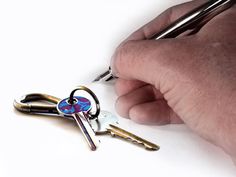Introduction
Being a responsible tenant is not just about signing a lease and paying rent on time. It’s about being a good neighbor, taking care of your rented property, and fostering a positive living environment for yourself and those around you. Responsible tenants are highly valued by landlords and property managers because they contribute to the overall well-being of the community. In this article, we’ll explore seven essential guidelines to help you become a responsible tenant.
Communicate Effectively
Effective communication is the cornerstone of a successful tenant-landlord relationship. From the moment you start your tenancy, maintain open and honest communication with your landlord or property manager. Keep them informed of any issues or concerns, whether it’s a maintenance problem, a change in your contact information, or a request for permission to make alterations to the property. Timely communication can prevent small problems from becoming big ones and help build trust between you and your landlord.
Pay Rent on Time
One of the most fundamental responsibilities of a tenant is to pay rent on time. Establish a reliable payment schedule and ensure that your rent is paid in full and on the agreed-upon date. Delinquent rent payments can strain your relationship with your landlord and may lead to eviction. If you anticipate any difficulties in paying rent, communicate with your landlord in advance to explore possible solutions.
Maintain the Property
Responsible tenants take good care of the property they are renting. This includes keeping the premises clean, addressing minor repairs, and reporting any significant maintenance issues promptly. Regular cleaning and maintenance not only keep the property in good condition but also contribute to a more pleasant living environment for all tenants.
Respect Your Neighbors
Being a good neighbor is an essential aspect of being a responsible tenant. Keep noise levels at a reasonable volume, especially during quiet hours, and be considerate of your neighbors’ needs. Observe any community rules or guidelines established by your landlord or homeowner’s association, such as parking regulations, and encourage a friendly and respectful atmosphere in your community.
Follow the Lease Agreement
The lease agreement is a legally binding contract that outlines the terms and conditions of your tenancy. Responsible tenants read and understand the lease agreement, follow its rules and clauses, and seek clarification from the landlord or property manager if anything is unclear. Violating the lease agreement can lead to eviction or other legal consequences, so it’s essential to abide by the terms of your agreement.
Seek Permission for Alterations
If you want to make any alterations or modifications to the rented property, such as painting the walls or installing fixtures, seek permission from your landlord or property manager. Unauthorized changes may result in loss of security deposit or even eviction, so always obtain written consent for any alterations to the property.
Be Prepared for Emergencies
Responsible tenants are prepared for emergencies. Know the location of emergency exits, fire extinguishers, and safety equipment in your rental unit. Understand the emergency procedures and contact information for maintenance or repairs. If you notice a safety hazard or a security issue, report it promptly to your landlord or property manager.
Conclusion
Becoming a responsible tenant is not only in your best interest but also contributes to a harmonious and enjoyable living environment for everyone in your community. By following these seven essential guidelines – effective communication, timely rent payments, property maintenance, neighborly respect, lease agreement adherence, permission for alterations, and emergency preparedness – you can be a valuable and responsible tenant who is highly regarded by landlords and property managers. In doing so, you’ll not only enjoy a positive rental experience but also help create a better living environment for all.















